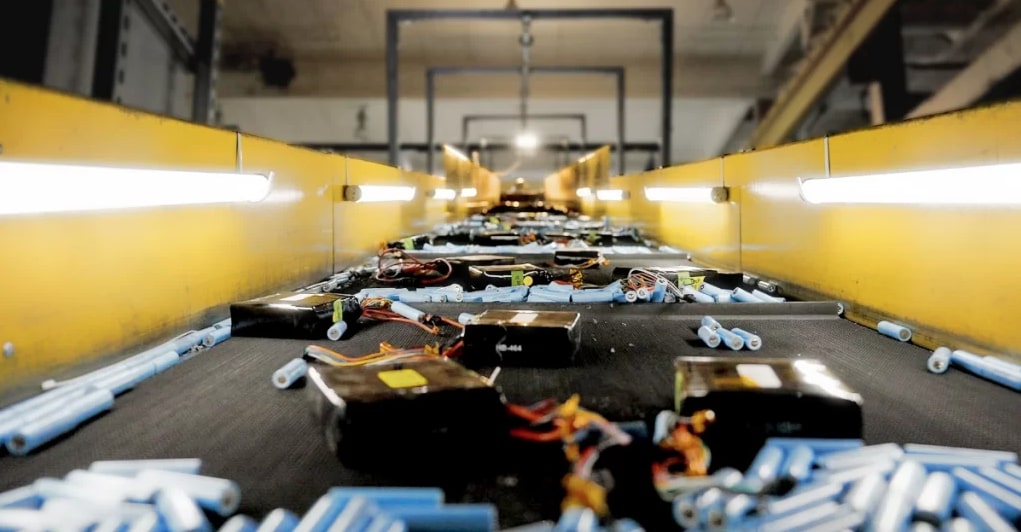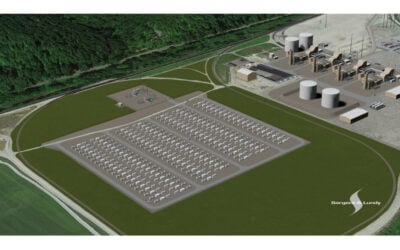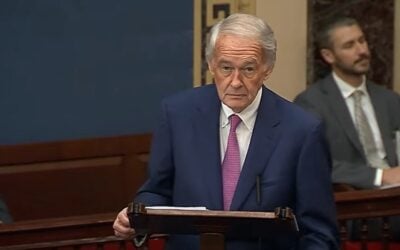
North American lithium-ion battery recycling specialist Li-Cycle has seen a significant increase in battery energy storage system (BESS) materials in its feedstock.
During Q4 2024, the company reported that BESS accounted for approximately 27% of its feedstock in the US. Li-Cycle also reported recycling the equivalent of more than 100MWh of energy from its BESS partners, which was a 33% increase over the previous year.
Enjoy 12 months of exclusive analysis
- Regular insight and analysis of the industry’s biggest developments
- In-depth interviews with the industry’s leading figures
- Annual digital subscription to the PV Tech Power journal
- Discounts on Solar Media’s portfolio of events, in-person and virtual
Energy-Storage.news recently reported on Li-Cycle’s increased BESS material recycling. The company’s Q3 2024 investor presentation showed the feedstock at the beginning of the year containing approximately 2% energy storage material. The 27% figure represents a 25% increase in energy storage materials in the feedstock from Q1 to Q4.

Energy storage materials can be recycled for a variety of reasons. Cells can be recycled because they have reached their end-of-life, they can be damaged during installation, manufactured incorrectly, recalled, or damaged from fire or other incidents. The recycling process allows critical materials to be recovered and reused almost indefinitely.
Li-Cycle cited two examples of the importance of its service. The company says it was able to quickly and safely process severely damaged battery modules from a BESS, shipped as hazardous waste, at its Arizona Spoke facility.
The company also noted an impending winter weather event that would impact an energy storage site’s availability and working conditions. Li-Cycle assisted an environmental services company to receive and recycle hundreds of tonnes of modules, equivalent to approximately 60MWh.
In 2023, Li-Cycle had to pause construction on its Rochester hub, citing ‘escalating construction costs’. This came nine months after the company received a US$375 million conditional loan commitment from the US Department of Energy’s (DOE) Loan Programs Office (LPO) for the facility.
The role of at-the-time LPO director Jigar Shah in that process has been questioned by Republican lawmakers in separate letters to the LPO and Shah in November and December, with senator John Barosso calling some alleged specifics of his involvement “extremely concerning.”
In 2024, the company finalised a loan of US$475 million with the LPO, enabling it to resume construction on the Rochester hub. The announcement on 7 November came two days after Trump’s election win, and Reuters reported that ‘Biden officials had rushed to close ahead of Trump’s return’.
The DOE and its LPO embarked on soaring grant and loan activity after Donald Trump’s second term election, as reported by Energy-storage.news (Premium access article). Due to Donald Trump’s order to pause fund disbursement through the Inflation Reduction Act (IRA) and Bipartisan Infrastructure Law (BIL), the fate of many of the LPO’s conditional commitments and finalised commitments are in the air.
The department announced loans or loan guarantees to other US clean energy tech firms including another recycler Redwood Materials and vertically integrated lithium-ion BESS firm Kore Power, as well as downstream projects like a massive green hydrogen hub in Utah, and solar and storage projects with wider community benefits in California and Puerto Rico.
Kore Power recently put its Arizona factory site up for sale. In June of 2023, the company received a conditional commitment from the LPO for a US$850 million loan for an Arizona gigafactory. A KORE Power spokesperson speaking with Energy-Storage.news about the site being put up for sale said that “KORE has not closed on the loan with DOE, so no taxpayer money has been spent.”
Ajay Kochhar, Li-Cycle President and CEO said of the company’s increased BESS material processing:
“Data centres supporting rapidly growing AI applications have become a leading driver of electricity demand in the US. BESS is well suited to address the swiftly growing energy needs of AI technologies through on-site energy solutions and supporting grid stability. Li-Cycle is an important BESS ecosystem partner as we provide a safe recycling solution and also recover critical materials already in use at commercial scale in the US, reducing reliance on foreign mineral supplies.”






